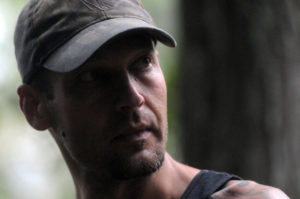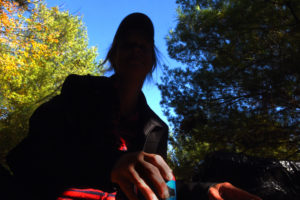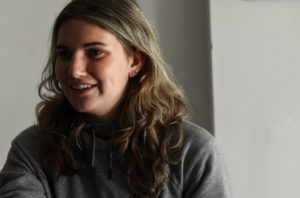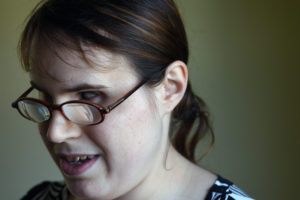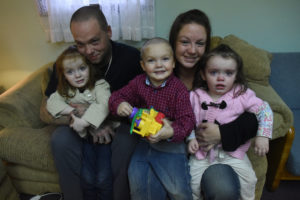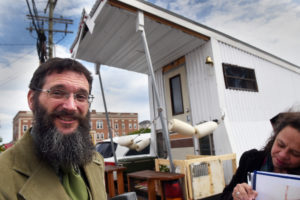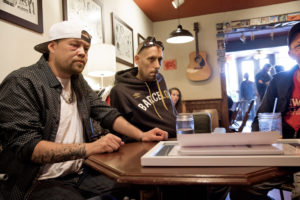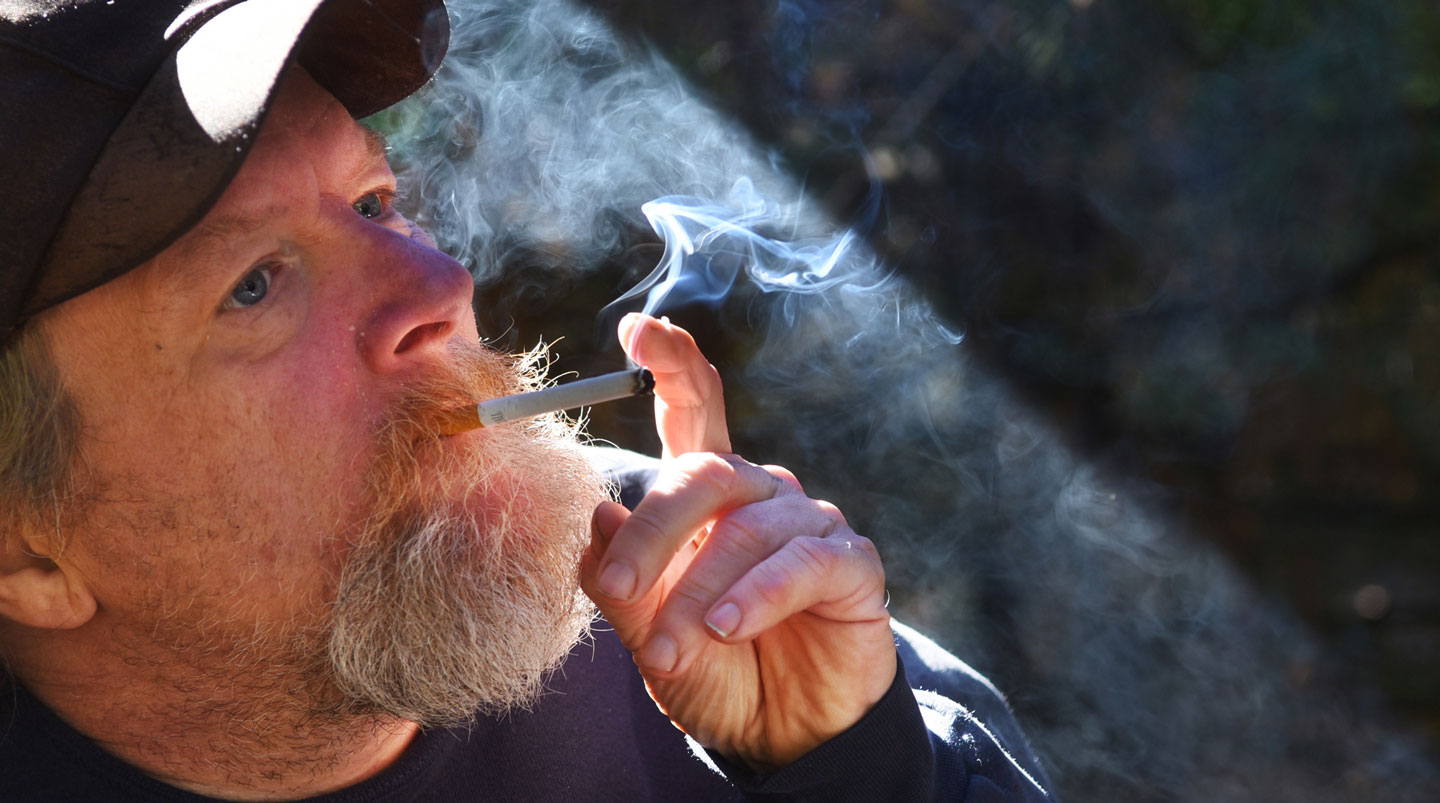
Haunted by past, Churchwell turns to the woods
DOVER — Portsmouth native Tom Churchwell’s life story is peppered with a series of plot twists that feel as if they were ripped from an entire shelf of paperback novels.
A magician who left his dream career behind because his chief rival was shot to death in 1998. A 9/11 mental health volunteer haunted by memories of Ground Zero, exposure to which may also have blinded him and given him throat cancer. A suspect in the high-profile 2002 murder of a New York fashion writer whom he dated on and off for several years. A photographer whose sight impairment allows him to capture things others can’t see.
All of those experiences are part of the backstory for a man who for the past several months has been living in a tent in a wooded area of Dover.
“When I was in my 30s, I was on top of New York,” says Tom, now 54. “I never thought in 20 years I’d be homeless. People think coming out here is an easy life, that it’s an easy way out, but it quickly turns into a daily battle.”
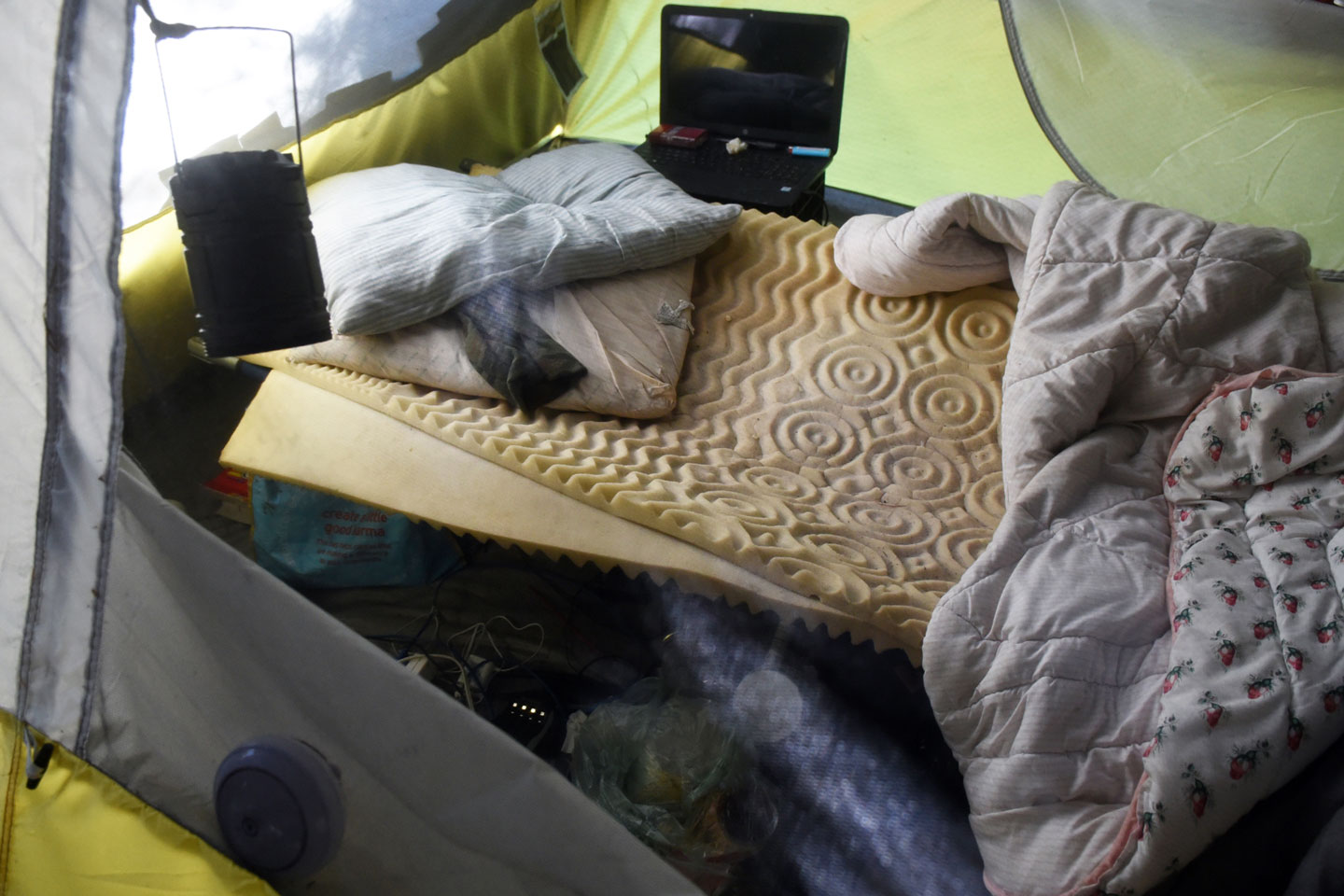
Tom, like many others in the woods, gets by on a monthly disability check, which he spends on food, coffee and fuel. He has a small generator by his small tent, which he uses to operate a heater and charge his electronics.
Tom has been on a housing wait list since February. He opted to join his brother and several others in the woods in June — even though he doesn’t drink and the others are all heavy drinkers — after what he says he experienced in two local shelters. In the first, he encountered a heavy religious message; at the other, a staffer accused him of lying about the severity of his impairment, which Tom likens to looking through the pinhole of a grayscale camera obscura.
“I’d rather be out here than there,” says Tom. “These people are controlling my life and they don’t even know who I am.”
Tom was diagnosed with degenerative optic neuropathy and atrophy after a period of vision issues in 2015. Doctors say it could have been caused by a variety of conditions that can appear as individuals age, although Tom believes his exposure to Ground Zero debris played a factor in it as well as his throat cancer, which has been in remission for a number of years.
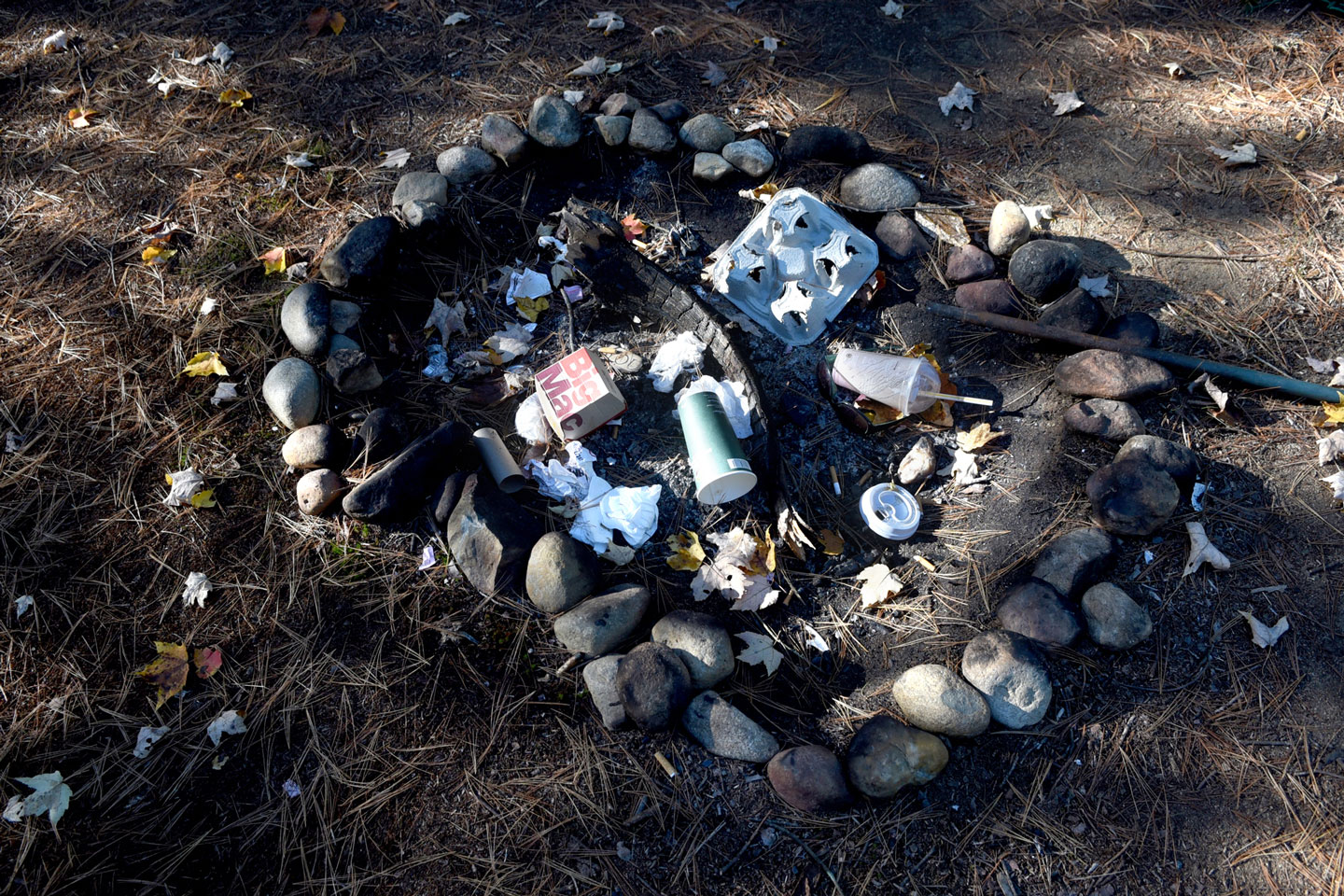
He has a sharp tongue, which slices through conversations, such as when he’s asked about the ways his sight impairment can make tenting in the woods more challenging. “I get stuck talking to trees a lot,” Tom deadpans. “Sometimes they talk back.”
However, when he talks about the series of traumatic events that still affect him today, his tone changes, his brow furrows, and the drags on his cigarettes become longer.
Tom’s dream of becoming a performer drew him to leave behind his abusive home life on Portsmouth’s Bartlett Street in favor of New York City. There, he was earning just enough as a magician at local bars and as a busker to pay his rent, but to him, he'd “made it.”
Then, his friend was killed in 1998, also killing Tom’s drive to perform because, he says, competing with the man pushed Tom to be a better magician. So, Tom gave up his magic career and entered the mental health field.
In 2001, he was living near the Twin Towers and working at the Institute for Community Living on Rector Street. He was in the area when the first plane hit on Sept. 11, and rushed to the World Trade Center after seeing the smoke. He doesn’t like talking about it, although he discussed it with Seacoast Media Group recently and in an interview in the weeks after the terrorist attack.
He says he'll forever carry with him what he experienced that day and in the days that followed: seeing disoriented people covered in ash and dust; the look of the flesh-strewn pavement; handling bags of body parts in the aftermath; and hearing the stories of first responders and families while providing counseling at Chelsea Pier No. 61.
“For the longest time, I had agoraphobia,” Tom says. “Everything that went overhead, I was hiding underneath my bed. I didn’t go outside, I wouldn’t go anywhere public.”
Death found Tom again in early 2002. Former flame Christa Worthington, a writer for Elle and other publications whom Tom met while working as magician, was killed on Cape Cod. During the investigation, police took Tom and several other suspects into custody during a highly publicized sweep for leads and DNA. He was eventually cleared, but it took a long time for the pain to subside.
It wasn’t until years later that Worthington’s trash collector, Christopher McCowen, was linked to the murder. McCowen was convicted in 2006, and since then the case has been the subject of books, films and documentaries, including a new one by ABC News this year, for which Tom was interviewed.
“Kind of getting out here (in the woods), I feel as if I’m finally away from it,” he says.
Tom sees big things for himself and he tries to look on the bright side — figuratively and literally, as the only time he can really make out fine details is when light washes over what's in front of him. He hopes to continue his career as a photographer and painter as long as his eyes hold up. While he admits his limited sight is a “bitch,” he does think it gives him an upper hand that allows him to capture complex and haunting shadows a normal eye can't see.
There’s a sense of irony in Tom working as a photographer while living homeless in Dover, given what he said to himself before he moved from New York back to New Hampshire.
“I questioned, ‘Why am I still here in New York when most of my work and photography is put online?’” he says. “I thought, ‘I could be doing this in the middle of the woods of New Hampshire.’ Nobody questions where you’re taking the photos. So, here I am.”
